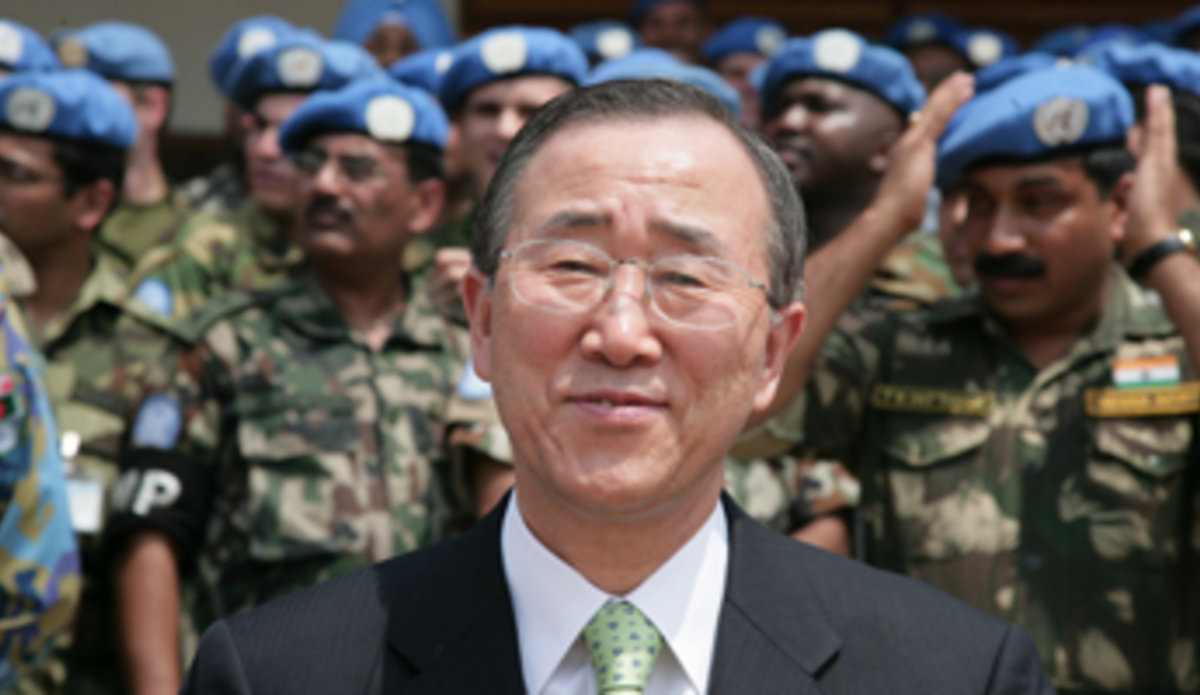Ban Ki Moon attends the DRC's fiftieth independence anniversary celebrations
Kinshasa, 30 June 2010 - The Secretary General of the United Nations, Ban Ki-moon, arrived in the Congolese capital yesterday to take part in the festivities of the fiftieth anniversary of the independence of the Democratic Republic of the Congo (RDC). He wished to mark the commitment of the United Nations to the country, and to accompany the transition, from MONUC to MONUSCO, on 01 July 2010 . On this occasion, Radio Okapi asked him three questions. Transcript.
Q : Your last visit to the DRC dates back to February 2009. This is your third consecutive visit to the DRC in last three years. What message would you like to give to the Congolese people and the DRC at the celebration of the fiftieth anniversary of its independence?
R: This celebration is a historic moment for the Congolese people. I am here to express United Nations' commitment to the Democratic Republic of the Congo and the Organization's will to work in partnership with the DRC in shaping a bright future for this country. The DRC has an important role to play in Africa and in the world; a role that includes the question of durable economic development as well of climatic change or protection of bio-diversity. The Democratic Republic of the Congo and the United Nations share a long history. United Nations' efforts went through several ordeals but dozens of thousands of peacekeepers, and thousands of UN international and local staff provided assistance to local population during their most difficult time.
Q: Mr. Ban, your visit comes in, exactly after the Resolution 1925, unanimously adopted by the UN Security Council. What's your point of view?
R: Civilians' protection remains a priority for the United Nations Mission in the DRC. The Resolution 1925 clearly highlights the terms of the Resolution 1906 of 2009 in this respect. The Resolution emphasizes the need for giving priority to civilians' protection and using every possible means, in order to discharge the mandate of protection, which includes effective protection of civilians, humanitarian staff and human rights' defenders as well as the protection of United Nations' staff, its premises and equipment.
Illegal armed groups, in particular FDLR and LRA, continue to cause untold suffering to the population of eastern DRC. United Nations Security Council authorized MONUC to support the military operations against these armed groups. This support is provided under certain conditions. That will remain the case with the new mandate.
Q: As from 1st July, MONUC will be handing over to MONUSCO, how do you justify the change of name?
R: Indeed, the Mission's name is changing tomorrow, but it is not a new mission. The United Nations' Mission in the DRC will then be called the United Nations' Mission for Stabilization of DRC. This change reflects the UNSC's desire to recognize the new phase, DRC has stepped into. Much has been achieved since MONUC's arrival in 1999; notably, pacification of a large part of the territory, holding of the democratic elections, establishment of the state institutions, etc. The country has now entered a new phase of consolidation and stabilization, and this is what the Security Council meant to highlight by changing this name.
 UN
UN United Nations Peacekeeping
United Nations Peacekeeping





